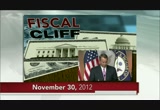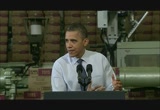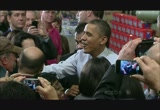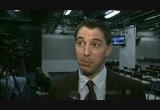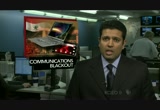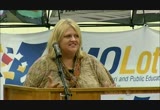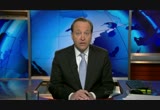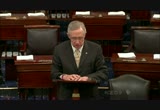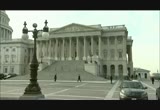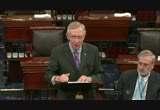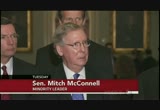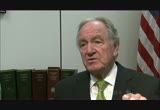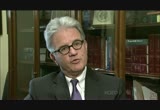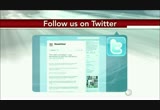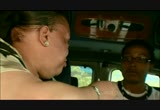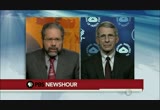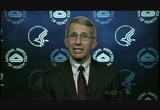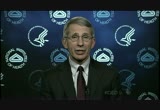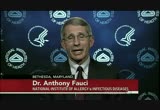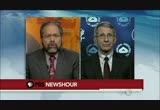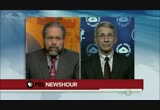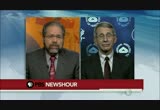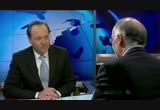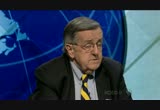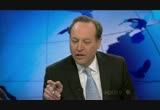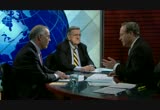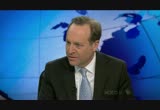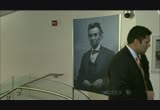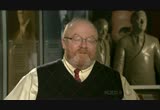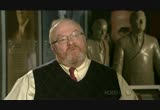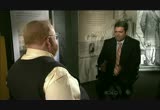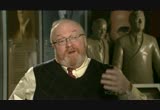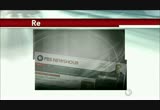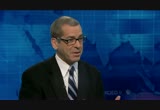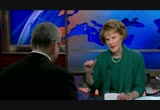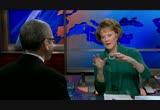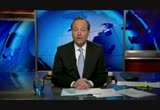tv PBS News Hour PBS November 30, 2012 3:00pm-4:00pm PST
3:00 pm
even as house speaker john boehner declares the negotiations are "going nowhere." >> brown: then, we turn to another congressional battle. kwame holman reports on sparring in the senate over proposals to change rules blamed for partisan gridlock. >> majority democrats want to put limits on the phil buster, a tactic used to delay legislation but republicans say the tool is key to protecting their minority rights. >> warner: on the eve of world aids day, ray suarez updates the hopes and frustrations in the fight against the deadly disease. >> brown: mark shields and david brooks analyze the weeks news. >> warner: and is the grand canyon 60 million years older than we've long thought? we ask science correspondent miles o'brien. >> brown: that's all ahead on tonight's newshour. >> major funding for the pbs newshour has been provided by: >> and by bnsf railway.
3:01 pm
and with the ongoing support of these institutions and foundations. and... this program was made possible by the corporation for public broadcasting. and by contributions to your pbs station from viewers like you. thank you. >> warner: washington's clock ticked another day closer today to automatic tax hikes and spending cuts, the so-called "fiscal cliff". the president took to the road, while republicans warned there's a deadlock in efforts to reach a deficit deal. >> now, of course, santa delivers everywhere. i've been keeping my own naughty
3:02 pm
and nice lists for washington. >> warner: the president chose a seasonal setting, a toy factory in hatfield, pennsylvania, and holiday imagery to press again for extending tax cuts for the middle class. >> if congress does nothing, every family in america will see their income taxes automatically go up on january 1. i mean, i... i'm assuming that doesn't sound too good to you. >> no. >> that's sort of like the lump of coal you get for christmas. that's a scrooge christmas. >> warner: in washington, republicans portrayed the road trip as so much humbug, at a time, they said, when negotiations are going nowhere. >> there's a stalemate. let's not kid ourselves. >> warner: house speaker john boehner said republicans remain willing to raise revenues, but not by raising tax rates. and he charged the white house isn't negotiating in good faith. >> the day after the election, i said the republican majority
3:03 pm
would accept new revenue as part of a balanced approach that includes real spending cuts and reforms. now, the white house took three weeks to respond with any kind of a proposal, and much to my disappointment, it wasn't a serious one. >> reporter: that proposal was presented by treasury secretary timothy geithner yesterday to congressional leaders. it was widely reported today that the white house offer called for: $1.6 trillion in tax increases over ten years, with higher rates on the wealthy; and more than $100 billion in new stimulus spending for the unemployed and struggling homeowners. it also would permanently give the president the authority to raise the nation's debt limit without congressional approval, unless two thirds of lawmakers disapprove. congressional leaders did agree to that step, as a temporary provision, in last year's debt ceiling deal. >> i think that the proposal
3:04 pm
that was delivered here by secretary geithner to the speaker and me yesterday was not a serious proposal. >> warner: house majority leader eric cantor and other republicans protested today that the president has offered no concessions at all. >> we remain in discussions. i know the speaker, as well as i, do not want to see us go to the fiscal cliff, but feel very strongly we've got to get serious here. we don't want to increase tax rates. we're not going to increase tax rates. >> warner: a white house spokesman shot back that republicans ought not to be surprised that mr. obama is sticking to his guns. and congressional democrats, like house minority leader nancy pelosi, welcomed the president's plan. >> elections have consequences. the president campaigned-- he made it very clear, he made it very clear that he was supporting a tax cut for the middle class, that he wanted the expiration of the tax cuts for the high end.
3:05 pm
and the american people know that debate, they voted for him. >> warner: still, despite all the tough talk, reporter todd zwillich of wnyc and public radio international says there's more movement behind the scenes than meets the eye. >> there does tend to be a pattern to how big negotiations like this go. the fact that they haven't reached an agreement yet doesn't mean they won't before christmas, doesn't mean they won't before new years. there is a value in doing some public posturing and trying to get the public and the media on your side in these negotiations. the speaker may be right, it may be a stalemate right now. but that doesn't mean a stalemate can't be broken. >> warner: there was no word on when negotiations between the president and republicans will resume. congress is headed home for the weekend, with the fiscal cliff deadline now just one month away. >> brown: still to come on the newshour: the fight over the filibuster; the state of the aids epidemic; shields and brooks; and the age of an american landmark.
3:06 pm
but first, the other news of the day. here's hari sreenivasan. >> sreenivasan: by the thousands, egyptians poured into the streets today to protest against president mohammed morsi. they attacked morsi's move to assume sweeping new powers and condemned a new constitution that was approved overnight by the president's islamist allies. opposition leaders joined the vast crowds in cairo's tahrir square today, and they vowed their protest would be open- ended. >> the message is clear. no one should think that the egyptian people are not capable. the egyptian people have moved from the level where they were told what to do to the level of real sovereignty. the egyptian people have to be heard. they have to consider the opinion of the egyptian people on any political decision. >> sreenivasan: the draft constitution drops language on women's equality and bans any language defaming prophets. it must now be put to a nationwide referendum. there was word today that israel has approved construction of
3:07 pm
3,000 new homes in jewish settlements on the west bank. the associated press reported the development one day after the u.n. general assembly recognized palestine as a non-member observer state, including gaza, the west bank and east jerusalem. the palestinians quickly condemned any new settlement building. chief negotiator saeb erekat accused israel of "defying the whole international community." in syria, internet access and most phone service was blocked for a second day. opposition activists blamed the regime. government officials insisted rebels were behind the outage. meanwhile, fighting continued in and around damascus, but government troops managed to reopen the road to the city's airport. the u.s. soldier accused of espionage in the wikileaks document dump has conceded he considered suicide after his arrest. private first class bradley manning was cross-examined today in a pre-trial hearing at fort meade, maryland. he admitted making a noose out of bed sheets before being sent to the u.s. marine corps brig at quantico, virginia.
3:08 pm
manning says his treatment there was so harsh, the charges should be dismissed. the military says manning was a suicide risk, so jailers kept him isolated and took away his clothes. the holders of half of that record powerball jackpot of $588 million came forward today in missouri. a 52-year-old mechanic, mark hill, and his wife cindy were introduced in dearborn, just north of kansas city. cindy hill said she couldn't believe at first that their ticket was a winner. >> i didn't have my glasses and i was thinking is that the right numbers, is that the right numbers. and i was shakingment and i called my husband. i said i think i'm having a heart attack. and i drove to my mother-in-law's house to let her verify what i had thought i had seen. and that's what it was. >> sreenivasan: the hills opted for a lump sum payment. after taxes, that comes to $136 million. there's been no official word on who holds the other winning ticket. it was sold in arizona, but a
3:09 pm
surveillance camera at a convenience store in maryland recorded this man on thursday, checking the numbers and apparently discovering he's the other winner. he did not give his name. wall street had a quiet ending to the week. the dow jones industrial average gained three points to close at 13,025. the nasdaq fell one point to close at 3,010. for the week, the dow gained just a fraction of a percent; the nasdaq rose 1.5%. those are some of the day's major stories. now, back to jeff. >> brown: george washington famously described the senate as "the saucer that cools the tea," a body designed to soothe "hot" legislation that emerged from the house of representatives. but as congressional correspondent kwame holman reports, some senators have gotten pretty steamed over a proposed change to how their chamber operates. >> holman: a sign of the holiday season-- the u.s. capitol christmas tree arrived in washington on monday. but behind the festive scene outside, there was a partisan war raging inside on the floor of the senate. the combatants-- democratic
3:10 pm
majority leader harry reid and republican minority leader mitch mcconnell. >> americans believe congress is broken. once again, the only ones who disagree are mitch mcconnell and the republican party. >> i've never said the senate's working fine. i think the senate's been disastrously run for the last two years. >> the american people know, democrats and republicans, that this place isn't working and there needs to be some changes so that we can proceed to get some legislations passed. >> disastrously run. but not because of the rules, but because of the operation. and it's certainly not the fault of the republicans. >> holman: the war of words comes as democrats look to make changes to senate rules playing a big role in that gridlock, specifically, use of the filibuster-- used to block or delay senate action on a bill by debating it at length or offering numerous procedural
3:11 pm
roadblocks unless a super- majority of 60 senators votes to proceed. veteran congress-watcher norman ornstein is with the american enterprise institute, a conservative think tank in washington >> there's been four years especially of deep frustration among democrats. frustration because the filibuster has been used really over the last six years, but in particular, over the last four, in ways that it was never in history used before. >> holman: designed to protect the rights of the minority party in the senate, the filibuster was used sparingly, often for issues of great importance like civil rights. but as the tool has become a regular tool of political warfare, scrutiny of the procedure has increased and questions raised about its impact on the chamber. now, reid and other senate democrats want to change the rules to eliminate the 60-vote threshold needed to formally begin debate on a bill; and require a "talking filibuster," forcing senators to make their case on the floor for
3:12 pm
hours and hours, like jimmy stewart did in the 1939 film "mr. smith goes to washington." >> i'm not, and i'm going to stay right here and fight for this lost cause. >> holman: or former south carolina senator strom thurmond, who spoke for over 24 hours in an attempt to defeat the civil rights act of 1957. but in today's senate, where 60 votes are needed to pass almost any piece of legislation, it means even the threat of a filibuster can gum up the process. democratic leader harry reid says enough is enough. >> we have this crazy idea, mr. president, that if we're going to have a filibuster, you have to stand and say something, not hide in your office someplace or go to a wedding that you're having in your state. >> holman: one of reid's key allies in the fight is democrat tom harkin of iowa, who has been pushing for filibuster reform for almost two decades. >> when i first broached the subject of changing the filibuster rule back in 1995, i warned at that time of an
3:13 pm
escalating arms race. i said that, if you look in the past, i said if we don't stop this, it's going to get to the point where the senate won't be able to function. i said that in 1995 when i first tried to get this change done. sadly enough, my predictions have come true. it's got to the point where we have to have a super-majority for everything. >> holman: with capitol hill on edge over the fiscal cliff negotiations, republican leader mcconnell has questioned the timing on reid's part. >> if i were the leader of the majority right now, i'd feel really good about the election. i kept my majority in the senate, the president was re-elected. boy, the first thing on my agenda would be, "now, how can i reach out to the minority? we've got big issues that can only be solved on a bipartisan basis. how can i be building bipartisan confidence going into these huge issues that we have before us?" the last thing on my list would have been to throw a bomb into the senate, have it blow up and have everybody mad as heck. >> holman: democrats have said
3:14 pm
they won't move forward on any changes before january, when the 113th congress begins. at that point, under conditions that only apply on the first day of a new session, they could alter the senate rules by a simple majority, known as the "nuclear option," with the help of the chamber's presiding officer, vice-president joe biden. >> the senate will unwind. if this happens, the total senate will unwind. >> holman: oklahoma republican tom coburn contends that revising the senate rules would go against what the founders intended. >> the united states senate was set up different than the united states house. they had two things in mind. one is to slow processes down, so that more thought, rather than reaction to the populace, would go into legislation, a cooling period. and the second was to protect minority rights. >> holman: and he says changing the rules would strip away those rights.
3:15 pm
>> once you start that, what you're going to have is the house of representative in the senate. minority rights will ultimately never be protected and you'll just have another house of representatives. if we're going to do that, why don't we just go to a unicameral legislature, because that's what you're going to have. >> holman: not so, says iowa's harkin. >> if they want to slow things down or if they want to offer amendments, the minority should have the right to offer germane amendments to bills that are on the senate floor. but the minority should not have the right or the power to absolutely stop something. >> holman: this is not the senate's first brush with the nuclear option. in 2005, then-republican majority leader bill frist threatened to change senate rules by simple majority after democrats blocked ten of president bush's judicial nominees. a bipartisan group of senators known as the "gang of 14" brokered a compromise that allowed a vote on some nominees without any changes to senate rules. republicans say the recent
3:16 pm
up-tick in filibusters is a justified response to reid's use of another legislative tactic known as "filling the tree." the maneuver allows the majority leader to seize control of all opportunities for offering amendments to a bill, blocking senators from the minority party from introducing any other changes. oklahoma's coburn says that has resulted in a legislative "tit for tat." >> the senate's history, go look at it, we've never had a majority leader cut off the minority's rights to offer amendments. and so the reaction is, well, if i can't get any amendments, i can't do the job i was sent here, why would i allow you to proceed?" >> holman: iowa's harkin agrees the minority should be able to offer amendments, but not if the intent is simply to stall legislation. >> because then you kill a bill by offering 1,000 amendments. is that what mr. coburn wants? that anybody can offer any amendment at any time on any subject, and you can just keep going like that?
3:17 pm
i mean, again, that is where the minority then trumps the majority. >> holman: both senate leaders have raised the option of talks to avert a rules change come january. but as the end of the current session approaches, no formal meetings have been scheduled. >> brown: you can find extended clips of kwame's interviews with senators harkin and coburn. that's on our web site. >> warner: countries around the globe will mark world aids day this weekend. the disease's toll is still enormous. more than 30 million have died since the epidemic broke out. and aids accounted for 1.7 million deaths last year. but there is growing optimism about curbing and perhaps ending the epidemic for the next generation, even as daunting hurdles remain. ray suarez has the story.
3:18 pm
>> suarez: the numbers are still staggerings, number 34 million are live well hiv, almost 5 million more than a decade ago. the u.s. substantially increased its commitment to fighting aid its under president george w. bush. yesterday secretary of state hillary clinton unveiled the obama administration's road map to increase access to treatment and eliminate new infriction-- infections in children by 2015. >> so as we continue to drive down the number of new infections and drive up the number of people on treatment, eventually we'll be able to treat more people than become infected every year. that will be the tipping point. we will then get ahead of the pandemic and an aids-free generation will be in our sight. >> it's been more than 30 years since the first known aids cases appeared in 1981. in the early years contracting aids was a near certain death sentence. >> there are few scarier
3:19 pm
things than the discovery of a new killer disease, one medical science admits is mostly a mystery for which there is no certain cause or cure. doctors have called the new one bizarre, frustrating, >> suarez: but wider access to drugs in recent years has changed the way people live with aids. deaths have dropped by 26% from their highest levels in 2005. new infection rates have fallen by 50% in more than two dozen countries -- 13 of them in sub- saharan africa. those modern achievements are due in part to activists who took on policymakers and the medical establishment early on to fight for new approaches to treatment. a new documentary, "how to survive a plague," chronicles the uphill journey. >> this is the plan we're we need our government to read this plan, we need them to work
3:20 pm
with us. if they want to change it a little we'll talk to them. but i want them to adopt it, i want them to get started on it, i want them to save our lives. >> suarez: these days, governments are doing more. but big problems remain. some seven million people in developing countries still can't get the drugs they need. and in the u.s., a new report found more than half of hiv- infected young people are unaware of their status. dr. anthony fauci has been on its front lines of this battle for the past 30 years. he's head of the national institute of allergy and infeblingcious diseases at the national institutes of health where he joins us this evening. dr. fau-- dr. fa, ci good to you have with us on eve another world aids day. 34 million people living with aids, good news and bad new tas people are living but still continue to get infected. >> that is correct. and that is the reason why there is such an important push going on domestically and internationally where most of the cases are, to get people into a treatment regimenment because what's become clear over the past couple of years, that
3:21 pm
despite those daunting statistics, that when you treat people, identify people who are hiv infected you not only give them lifesaving therapy but you dramatically diminish the likelihood that they will infect their sexual partners. and so although the numbers are very high, we are now starting to go in the direction in several countries where the death rates are down, where the infection incidents is down. and where we're getting more people on therapy than we actually are getting newly infected. and we call that the tipping point. and we're starting to see that in some countries. so the bad news is that it's still an immense epidemic pandemic but the good news is that we are clearly going in the right direction. >> suarez: it's been 16 years since the combination therapies have really widely taken hold. looking back over your shoulder did it work better than you had even hoped back in 1996? >> well, yes, yes. in many respects, ray, it did work better because we have been incrementally with
3:22 pm
newer drugs, one drug and then two drugs in combination, doing better and better. but the idea of being able to suppress the virus to the point where you actually transform the life 6 an hiv infected individual, where you have patients who otherwise would have died or who had been very, very debilitated essentially leading lives, and the statistics are proving that to be the case. we know that because if you put a young person in their mid 20s who is newly infected on these drugs in the appropriate combination, you can predict that they would live an additional 50 years to almost a normal life span. i really even though we were doing every day over decades, i really did not imagine that we would have been this successful with having a combination that could do that. the real thing now is to implement that and get that to the people that need it. so that's really the challenge for the future. although the data are very encouraging, we still need to implement. and that's what we're
3:23 pm
talking about in world aids day this year in 2012, that although we've accomplished a lot, we still have major challenges. >> suarez: your perspective is won the hard way, day before day over the decade, in the documentary how to survive the plague. we see a shockingly young tony fauci but we also see and are reminded of the terrible toll the early days of this disease took. take us back to that time. >> those are very dark years, ray. before we had any therapy, it was like putting a band-aid on a hemorrhage. we had people who were presenting and not knowing that they were ill until they were far advanced in their illness. my own personal experience was very dark and very depressing in many respects. although dealing with the patients gave me and them hope. for example in the mid 80s when i would be seeing patients here in the washington area, that the median survival was 6 to 8 months. which means that 50% of my
3:24 pm
patients would be dead in 6 to 8 months. that was a terrible statistic. and very painful for everyone involved. and to have over the decades transformed into where we are now is an extraordinary accomplishment. and that's the reason why we are, we're energized because we've been so successful to make sure this gets very broadly implemented both domestically and internationally. >> suarez: in one of the earliest publish pieces you wrote on the disease, before we even knew it was caused for sure by a virus, you wrote the mortality may well approach 100% making this one of the most extraordinary transmissable diseases in history. even though the mortality is way down from 100%, is it that, one of the most extraorbd transmissable diseases in history? ness. >> there is no doubt about that, ray, by anybody's accounting, that if you look historically over centuries at the handful of diseases that have been public health disasters, the bubonic
3:25 pm
plague, the influenza pandemic of 1918, the small pox pandemic, the measle pandemics, clearly hiv aids is in the very, very short list of one of the most devastating pandemics in the history of our civilization. and that is not hyperbowle. you look at the numbers. you look to see what has happened and that is just the fact. >> suarez: right now the big frontier seems to be lowering sexual transmission because we have apparently caused great decreases in the mother to child in utero transmission. how o come that is so much more stubborn. >> well, it is sexual behavior and it is very difficult with something so natural to the human species to get people to avoid risks. for example, if you look here in the united states, the majority of cases are actually among men who have sex with men, particularly among the african-american population. if you look internationally, where 90 plus percent of the
3:26 pm
cases are male to female hetero transsexua transsexual-- transmissable is rbs it is part of human nature, people take risks or even people don't understand what the risks are. and that is a tough nut to crack when are you dealing with it. that is the reason why educating and getting people to be tested, to identify whether they are infected or not and to counsel them if they are not infected and get them into a care treatment program, if they written effected is so terribly important. >> a lot of reasons to be encouraged and a lot of challenges ahead. dr. anthony fauci thanks for joining us. >> you're welcome. you can see my interview, how to survive the plague. plus we ask journalist john cohen to take stock of the latest aids development. >> brown: and that brings us to the analysis of shields and brooks-- syndicated columnist mark shields and "new york times" columnist david brooks.
3:27 pm
so david, where are we on this cliff, over, under, sideways. >> we're going backwards. i guess that is a good thing. >> backing away would be good. >> we're going towards the cliff. >> and so what happened is the election happened. obama wins. clearly he ran on raising tax or raising revenue from the top 2%. center piece. republicans are not stupid. they sort of understand that. so they went through a process the day after boehner said revenues but not rates, and some began to drift over, okay, rates, so you have had movement, until friday or yesterday, thursday, when tim geithner goes up there and delivers an ultimatum which is a chest thumping stick in the eye to the republicans. and all the migration suddenly stops and suddenly they get outraged apt are. and so they are back, they are going back to where grover norquist wants them to be because they are outraged because they feel they have been insulted is, that this is not a negotiation t a war. i think what had yesterday from the administration was a bit of negotiation
3:28 pm
incompetence because they pushed us, the psychological process the republicans were going through, which they have to go through has to be has been pushed way back. >> where do you think we are. >> i'm not quite clear as dire in my assessment as david. first of all, david is absolutely right. the president did not run on big ideas or grand agenda but he did relentlessly endlessly emphasize that he was committed to raising taxes and returning to the prebush tax cut rate of the clinton era. i think that we are in a little bit of a chest bumping stage. the process -- >> you call it chest bunch, he called it stick in the eyewitnesses i think what we're seeing, i think you see some republicans we're not going to do a thing, we're just going do it with closing exemptions or eliminates exemptions and that is what mitt romney ran on. i think barack obama is showing a different side of negotiation than he has in the past. he has been criticized by many, including me on
3:29 pm
occasion for give ago way the store. >> from his left. >> from his left. i mean but on his health-care bill, brought in farm aid, brought in all the drug companies and said okay, we're not going to invest with you. you support this. and gave away-- first the negotiations on the debt ceiling. the same thing, he was negotiating with medicare cuts right at the outset. and people say wait a minute, so here he comes in, he shows a little spine, a little steel, and this is what i said i was going to do, in the waive increases. they say wait, what about these medicare cuts. 9 only people that brought up medicare cuts were the republican was talked about obama was going to cut $716 billion so now we're in a situation where nobody wants his or her fingerprints on the medicare cuts. >> uh-huh. >> okay. the medicare cuts, i can assure you, and this is going to upset a lot of people, will appear in the negotiations. they will be-- paternity will be denied but they will miraculously appear. and i think we've got to
3:30 pm
outline what will go ahead with the deal. >> who is playing what hand, who is playing from strength here at this point. >> on this the president has the strength. no he request. first he won the election. second the polling shows that people are more likely to blame the republicans. third, if you look at the way the rules of the fiscal cliff are structured, the republicans lose big. the cuts, the sequestration, the cuts come out of defense disproportionately so they come out of republicans, so a lot of republicans said this is not a great place to wage this fight. we would rather not fight here. >> what do you think about mark's point about, his coming on-- you are he assaying he's got a strong hand but he came on too strong. >> right, he has overread his mandate. the democratic mantra is oh, i don't believe in mandate, i'm not going to read the mandate and then they overread the mandate. the second mistake he is is making the mistake president bush made when he won re-election with social security reform. instead of sitting down with the people are you going to need, he goes around the country. because frankly for recently
3:31 pm
re-elected president, it is a lot more fun to go out and give speeches around the country than have a two way conversation in washington. and so they have not had these two way conversation, it is essentially the actual talking process is just -- >> what do you think about the mandate question. because earlier this week i interviewed two congressmen on this question. keith ellison, the democrat talking about the mandate. the republican was tom krise. he said whatever man data the president and democrats think they have is no greater or less than the mandate that we as house republicans also have. >> i mean with respect to dr. price, the majority of americans who voted in congressional elections voted for democrats rather than republicans. but because of the way the lines were drawn creatively in pennsylvania, ohio, the republicans ended up with the majority. he's right in the sense that, and there is the problem that john boehner has as he tries to craft a compromise with his own.
3:32 pm
and that is that the republicans who were in that caucus, two-thirds of them, one in district of over 60%, so their only worry is a-- they don't have to worry about election, they are great republican districts, they are kbernd that. my quarrel with david is david's focusing on the process right now. i'm saying the president is not good at congressional relations. he never has been. according to mark-- cbs news, the keeper of the flame, he has played golf 104 time, three time its he has played with a member of congress, once with john bairn, es sea not -- >> that's a way of keeping skoferment he's not somebody who schmoozes. he is not somebody who is good that way. but what we judge is not the process. we judge the product. it is a product he comes out with is good, if it is fair and just, and moves the
3:33 pm
countries economy, and starts declining the deficit then it's good. and the process will have worked. if it isn't, then we can revisit the process and say the process was flawed. >> the process getting there is the hard part. we could all in our heads draw up a deal but he has had people over the last couple of weeks, republicans taking risk. boehner took a risk, tom cole took a risk and he undercut them. he made them look stupid with what he did yesterday. they feel furious, they feel burned so you have to help your people along. you have to make it more possible. and so that's why i think you just got to what he offered was not only a balanced deal that would be fine if he offered something balance, he offered something even worse from the republican point of view than what he had offered a couple years ago. so he started with drawing things off the tab and it seemed like chest beats. >> we just went through an election, david. the republicans are the ones who are for medicare kurkts they really are. so what he is basically saying is okay this is my
3:34 pm
proposal. i am going to increase taxment i won that. okay, now where is yours. >> it sounds like-- ness you want to come up with a medicare cuts. >> no, we don't want to come with the medicare cuts. >> it sounds like the two guys on the president's shoulder, right. >> i got to be tough because i won or the process, i got to -- >> i got to actually cut a deal. he is in favoured of a balanced approach. he is president of the united states, the way the world works he proposes and people debate his plan or at least his a prepare. he doesn't have an approach because he doesn't have a balanced approach. >> let me ask you about the kwame piece on the filibuster. is this, you know, it's rules, sort of arcane stuff, but is it something bigger there, is it about real gridlock. >> it's real, it's deadlocked, it's dysfunction. the key was the last time they did the filibuster rule of 1975 when they cut it to 3/5 votes, then it was
3:35 pm
bipartisan. i mean this is strictly partisan right now. if the democrats are in charge, the democrats win it, but the deadlock and the dysfunction and the use of the fill buster in the last five years as a political weapon has become just a matter of course, of every day. i mean on the simplest things. and i just think a very simple,cism reform would be if are you going to lead a filibuster you have to be on the floor. you've got to be willing to provide it. >> in 2005 the republicans tried this they were the majority then. they tried t we called it the nuclear option. and i thought it was terrible then. i think is terrible now. i really think the rights of minorities should be protected in the senate. but if you look at the senate today and the speeches today, every one's position is entirely switched. so all the republicans who say oh, the phil bust certificate out of control. now they are for this, and all the democrats, they are suddenly for the phil buster tom harkin was one of the big proponents in kwame
3:36 pm
piece, something he said in may 2005 for more than two centuries senate rules and traditions have respected rights of minorities. >> so everybody has flip-flopped on this, depending on where you sit. >> harry reid to his credit has said that he has flip-flopped. he admits his position. >> all right, one more subject, is susan rice. the beginning of this week, last weekend it looked as though there was a bit of softening of the harsh criticism of. her. she goes up to the hill this week. she talks to some of her harshest critics and they come out and sound as down on her as ever. >> we don't really know what happened in those meetings. the crucial one was with the moderate republican susan collins of maine who is a very careful, very thoughtful and very moderate in temperment and in philosophy senator. and she had a 75 minute meet being susan rice and came out sounding more doubtful than before. so i don't know what happened in that meeting. i think the essence of this thing and i'm guessing from
3:37 pm
the body language is the politicsment people think she's too political, too partisan. >> susan rice. >> susan rice and that sometimes she is been kind of, you know, she can be tough. i think she's had too many times at the u.n. has been quite effective but has more of a political aura than we are used to in our diplomats. the only thing coy say is the job of the secretary of state is to go into a room with somebody, have a meeting and get somewhere. and if she couldn't get somewhere with susan colins, then that is a little bit of a problem. >> what do you think, is it about benghazi, the politics or susan rice. >> benghazi say mystery to me. i mean i think benghazi is who lost china. it's almost like the republicans are looking for that silver bullet and that eludes me. she's partisan, susan rice is partisan. as a u.n. diplomat, unlike statesman like john bollton, you know, such a totally bipartisan-- totally bipartisan nonpartisan figure. but i found that susan
3:38 pm
colins is a moderate philosophy, moderate in manner. i found her criticism interesting. she found fault with susan rice for having been the spokesman for the democratic administration's position on foreign policy. and you know, colin powell, god bless him and says this will be the shame of his life, he was the one without made the case for going to war in iraq, you know, as the spokesman. i think this. what struck me was the administration has really handled this badly. i mean you don't send her up to the hill to meet with people unless you're going have some friendly meetings too. are you going to have some positive people come out and say claire mccaskill, they say how wonderful she is and at the same time what you have got to have is other people. where are the endorsers. i haven't heard from madeleine albright, hillary clinton. she just kind of out there by herself which may be a
3:39 pm
message. >> i will keep watching that one and everything else. >> mark shield, david brooks, thanks as always. and if you want even more, mark and david keep up the talk on the "doubleheader" recorded in our newsroom. that will be posted at the top of the "rundown" later tonight. >> warner: we'll be back shortly with a look at efforts to pinpoint the age of the grand canyon. but first, this is pledge week on pbs. this break allows your public television station to ask for your support. and that support helps keep programs like ours on the air. >> brown: for those stations not taking a pledge break, we take an encore look at president abraham lincoln and his evolving legacy in politics and culture. earlier this year, hari sreenivasan toured the ford's theatre center for education and leadership in washington, d.c., with historian richard norton smith.
3:40 pm
>> sreenivasan: walking into the theater center is like taking a step back in time to the cobblestone streets of washington on april 16, 1855, the day after president abraham lincoln's death. newspaper headlines cover the walls of the new exhibit which ...in a building across the street from ford's theater where the president was assassinated. >> you walk to the third floor and you come to this mothy attic. the chronological treatment. >> reporter: presidential historian richard norton smith, who helped design the center, says its mission is to examine how lincoln has influenced americans great and small since his death. in part, that influence is symbolized by the 34-foot-high book tower that connects the center's three floors. it's made of aluminum and represents some of the roughly 15,000 works written about lincoln. >> the story didn't end on april 15.
3:41 pm
in some ways, the story begins. the story of what we want lincoln to be. which lincoln are we talking about? the evolution of the posthumous lincoln. it's like a mirror held up to the evolution of the country itself. >> sreenivasan: it's almost like his words and possibly his life is a poem to be constantly reinterpreted? i mean, over your shoulder are two very different presidents using his words. >> absolutely. nowhere has lincoln's posthumous influence been greater than on the presidency itself. the classic example of how everyone needs to, as one historian says, get right with lincoln. we have dwight eisenhower and franklin roosevelt. ike from the right, fdr from the left, each of them admiring lincoln. there's a quote, a famous quote about the role of government.
3:42 pm
talk about something contemporary. well, both eisenhower and fdr regarded it as their favorite lincoln quote. in fact, barack obama quoted from the same passage in his state of the union address. >> i'm a democrat. but i believe what republican abraham lincoln believed-- that government should do for people only what they cannot do better by themselves and no more. ( applause ) >> you can take away from lincoln almost anything that you want. presidents in war time, embattled presidents, unpopular presidents-- they all look to lincoln. he's their patron saint, because no president was more embattled or more unpopular than lincoln was during his presidency. we think he was born on mount rushmore. not so. theodore roosevelt hung his picture in the president's office and said, "whenever i have a major decision to make, i always ask myself would lincoln would do."
3:43 pm
woodrow wilson, who was a son of the south, who remembered seeing jefferson davis in chains being led past him at the end of the war nevertheless developed something of a hero worship for lincoln. richard nixon, as a 12-year-old, was given a portrait of lincoln that he hung over his bed. nixon also justified what would later be seen as abuses of power by comparing america in the vietnam era to the country during the civil war. so over and over again, lincoln is always there if you want to cite him to justify the expansion of presidential power, particularly in war time. >> sreenivasan: why do you think it is that people keep coming back to lincoln to study and to write and rewrite? >> it's a great question. he's not washington or jefferson, about whom scholars obviously continue to write but who seem more remote. lincoln seems more accessible to us.
3:44 pm
in many ways, lincoln is one of us. a number of reasons for that. first of all, he had a sense of humor, which does more than anything to humanize people. he had an unhappy marriage, which makes him somehow accessible. he had children. he experienced tragedy. of the events of lincoln's life and how he dealt with them and the personal growth, that makes lincoln very nearly timeless. >> sreenivasan: lincoln is an icon that we see so much in pop culture today. give us some examples of how lincoln is so used. >> well, used and abused. i'm sure there are viewers out this who, when they think of lincoln they think of the, depending on their ages, raymond massey or henry fonda or hal holbrook or gregory peck or others who have played lincoln in the movies. >> furthermore, it's well known that the more a man speaks, the less he's understood.
3:45 pm
( laughter ) >> lincoln has in fact been used almost from days of his assassination to sell products. we have lincoln logs. for a younger generation, "ted and bill's excellent adventure" includes lincoln. he is just one of those figures if you're selling a product that's synonymous with integrity, whether it's an automobile or insurance or a remedy for sleep deprivation. >> sreenivasan: honest abe. >> absolutely. honest abe. everyone wants lincoln on their side. almost everyone can devise a rationale to justify that. we go on debating who he is, what he really believed, and how it influences our politics and our culture to this day. >> sreenivasan: and that story is not over. >> that story is far from over.
3:46 pm
we deliberately wanted an unfinished quality about this museum, about the story that we're telling here. because the one thing we know is the last word about lincoln will never be written, and the next generation and the generation after that will discover and interpret lincoln for themselves, just as we have. >> sreenivasan: richard norton smith, thanks so much for your time. >> thanks for your interest. >> warner: finally tonight, just how old is the grand canyon? the conventional wisdom holds that this natural wonder of the world was shaped by the colorado about five or six million years ago. but there's been a long-running debate over whether it's much older. yesterday, researchers published a study in the journal "science," arguing these majestic formations were formed
3:47 pm
by two much older rivers cutting through the landscape some 70 million years ago, during the age of the dinosaurs. we have newshour science correspondent miles o'brien here to tell us what the debate is all about. so miles from 6 million to 70 million years s that scientifically as big a gap tas amir-- appears? >> yeah, it's a big deal, there is a big debate in the scientific community right now over t margaret. when you look at the grand canyon as a layperson, we've been there and see it, you would say clearly the colorado river formed this over many, many of years and we know the colorado river is between 5 an 6 million years old new york scientific debate there, there is plenty of evidence on that. so you would say well, the canyon must be that old. well the newspaper that kim out becky flowers of the university of colorado, took a series of readings on the eastern and western portions of the river which measured a helluous isotope which stops es kate-- escaping at -- 0 degrees. you can tell how the rocks
3:48 pm
have been rising out of center of the earth and sort of pinpoint where the depth had been. and they came to the conclusion that there was a grand canyon there some 70 million years ago before the river. well, how would that be? well, they say there were actually two rivers, one that flowed one direction 70 million years ago. another that flowed the other direction 50 million years ago and that made a canyon which now the colorado river uses, make sense? >> warner: meaning what the other river disappeared. >> pretty much. >> warner: now there are real debunkers in this. >> yes, indeed carl carl's trom who speaks on we half of a large community of scientists says no that is not true. they do believe there were canyons there of that vintage but was it a grand canyon. so in many many senses this might be kind of a semantic debate. but it shows you how interesting this place is, to scientists. >> warner: first before we get to that you can explain in layman's terms how they came to different
3:49 pm
conclusions? in other words, are they testing different materials? using different methods? >> there is not much debate that they got a good number on the age of the rocks and the depths of the rocks. >> warner: you mean on the side of the canyon. >> on the side of the canyon as they measured helium isotope as it escaped. that is not the question, the question is that part of the the grand canyon or is it a paleo canyon that morphed into the canyon we see today. in a way it is a semantic debate them are sort of both right except the paper that came out says the grand canyon which we see today is 70 million years ago. scientists on the other side are saying wait a minute, it might have been old canyons there but it is not our grand canyon. >> warner: on what do they base that. >> they are base continuing on the data that they v a big mound of geologic and isotope dated which tells them that basically the colorado river was at the centre of this canyon. >> warner: now i read that if it were 70 million years
3:50 pm
old and the age of dyne saars the landscape would have looked very different than we imagined. >> yes, if you go back 75 million years ago, think about t would you have been at the beach there. would you have seen sharks in that place. so what was going on in that part of the world 75 to 70 million years ago was a very interesting formation, very interesting time, where you saw something that was very low, at sea level, rise up because of the plates that are colliding together that give us the rockie mountains and all the tech ton eck activity there there was a lot happening there. >> warner: and the dinosaur era, we think of them having all this lush vegetation too. >> they had a beach too, and they could have seen some sharks swimming in what is now the grand canyon. >> warner: so back, is this scientifically important or is this just fascinating because we all love the grand canyon? >> this is as good a place as any if you want to study the history of our planet, you know, basically when you look at the wall of the grand canyon which goes down a mile you are reading a his
3:51 pm
three book, you just need to know how to read the boxes-- rocks. and the deeper you go the further back there time go. $2 billion years that is about half the planet right there. so geologists love the story that they cun fold there, it tells them a lot about erosion, it tells them about tetonic, volcanoism, and it gives them a glisless-- glimpse into the early days of our planet without having to drill a deep ohl. and then there are the 5 million of us that just like to go and go wow. >> warner: i guess the question is are they going to have to change the lecture what do they call, the trail of time or something that they have. >> the trail of time just got much longer, carl says no, he's going to make sure that they don't do that. so there will be further, i guess we can say stay tuned on this one. >> warner: we'll stay tuned, maybe not for 6 million years, miles o'brien, thank you. >> pleasure, margaret. >> brown: again, the major developments of the day:
3:52 pm
president obama made a campaign- style trip to a toy factory in pennsylvania touting his plan for higher taxes on the wealthy. but republicans warned that efforts to avoid the fiscal cliff are deadlocked. and thousands of egyptians protested against president morsi's new powers and against a draft constitution pushed through by islamists. what do you get when you cross economic news and surf rock? i have a feeling paul solman is involved. hari sreenivasan gives us the answer. >> sreenivasan: our resident financial bard "merle hazard" re-imagines the fiscal cliff debate as a 1960s-style drag race between party leaders. you can watch his animated music video on paul's "making sense" page. we're introducing a new feature- - feed your science diet with "lunch in the lab," a virtual platter of science news, delivered fresh every monday, wednesday and friday. today's daily special-- the mars rover rumors. and on "need to know" tonight, an encore report about an investigation into alleged abuses by u.s. border patrol officers.
3:53 pm
3:54 pm
>> warner: and that's the newshour for tonight. i'm margaret warner. >> brown: and i'm jeffrey brown. "washington week" can be seen later this evening on most pbs stations. we'll see you online, and again here monday evening. have a nice weekend. thank you and good night. >> major funding for the pbs newshour has been provided by: ♪ ♪ ♪ ♪ ♪ ♪
3:55 pm
>> moving our economy for 160 years. bnsf, the engine that connects us. >> and by the bill and melinda gates foundation. dedicated to the idea that all people deserve the chance to live a healthy, productive life. >> and with the ongoing support of these institutions and foundations. and... >> this program was made possible by the corporation for public broadcasting. and by contributions to your pbs station from viewers like you. thank you. captioning sponsored by macneil/lehrer productions captioned by media access group at wgbh access.wgbh.org
3:58 pm
3:59 pm
newman's own foundation. and union bank. >> at union bank, our relationship managers work hard to know your business, offering specialized solutions to help you meet your growth objectives. we offer expertise and tailored solutions for small businesses and major corporations. what can we do for you? >> and now, "bbc world news." >> i'm kathy kay. egypt is young and fragile,
273 Views
IN COLLECTIONS
KQED (PBS) Television Archive
Television Archive  Television Archive News Search Service
Television Archive News Search Service 
Uploaded by TV Archive on

 Live Music Archive
Live Music Archive Librivox Free Audio
Librivox Free Audio Metropolitan Museum
Metropolitan Museum Cleveland Museum of Art
Cleveland Museum of Art Internet Arcade
Internet Arcade Console Living Room
Console Living Room Open Library
Open Library American Libraries
American Libraries TV News
TV News Understanding 9/11
Understanding 9/11